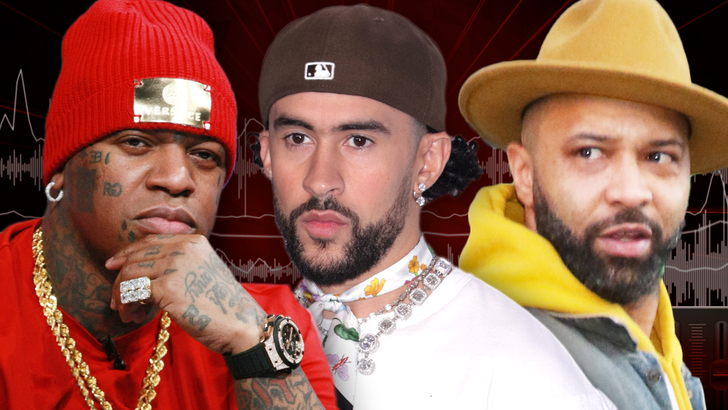Young Dolph, an influential figure in the hip-hop community, was tragically shot and killed on November 17, 2021, in Memphis, Tennessee. His untimely death sent shockwaves throughout the music industry, especially among his fans and fellow artists. Dolph’s passing not only left a void in the hip-hop landscape but also deeply affected his loved ones, including his family and friends. His legacy as an artist, known for his authenticity and street narratives, has further amplified the call for justice in the wake of this senseless act of violence.
The investigations that followed Young Dolph’s murder uncovered a complex web of circumstances surrounding the crime. Law enforcement promptly identified two individuals as key suspects: Justin Johnson and Cornelius Smith. Both men have been charged with first-degree murder, and their alleged involvement in the shooting has been a focal point of the ongoing case. As the justice system proceeds with the legal process, the impact of these developments extends into the heart of the local community, where Young Dolph was not only regarded as a talented musician but also as a philanthropic figure dedicated to uplifting his neighborhood.
This case serves as a reminder of the persistent challenges faced by many in the hip-hop community regarding violence and its consequences. The stakes are high as the families of both the suspects and Young Dolph await the next steps in the judicial proceedings. Furthermore, the case highlights the broader societal issues of gun violence and crime, calling attention to the need for more concerted efforts to address these problems. Ultimately, the quest for justice following Young Dolph’s murder signifies the resilience of his family and the community as they strive for accountability and closure amid their loss.

Justin Johnson’s Conviction: Implications for the Remaining Suspects
The recent conviction of Justin Johnson has significantly impacted the ongoing murder case surrounding Young Dolph’s tragic death. Following a trial that garnered widespread attention, Johnson was found guilty of charges related to the crime, which has set a critical precedent for the judicial proceedings involving the remaining suspects: Cornelius Smith and Hernandez Govan. Johnson’s conviction not only reinforces the severity of the charges being brought against his co-defendants but also provides the prosecution with a crucial strategic advantage as they prepare for future court dates.
During the trial, Johnson’s testimony emerged as a pivotal element in securing his conviction. The details he provided offered essential insights into the events leading up to Young Dolph’s murder and outlined the roles played by the other suspects. This cooperation has raised questions about the potential for plea deals in which Johnson might testify against Smith and Govan. Prosecutors are likely to leverage this aspect in their cases, setting a tone that emphasizes accountability and discouraging any evasive defenses the remaining suspects may pursue.
Furthermore, Johnson’s fate may influence how Smith and Govan approach their respective legal strategies. The outcome of Johnson’s trial serves as a stark reminder of the high stakes involved and the thoroughness of the investigations. As the prosecution prepares to present its case against the remaining suspects, they are likely to incorporate the evidence that led to Johnson’s conviction, potentially leading to a strong case against Smith and Govan.
These developments not only highlight the progression of the case but also emphasize the importance of cooperation among the defendants. In analyzing the implications of Johnson’s conviction, it becomes clear that the path forward for his co-defendants will be fraught with challenges, markedly shaping the dynamics of the legal proceedings that are set to follow.
Court Dates and Legal Proceedings for Smith and Govan
The murder case of Young Dolph continues to develop, particularly regarding the remaining suspects, Cornelius Smith and Hernandez Govan. As the legal proceedings advance, several critical court dates have been scheduled that will significantly impact their future. The next hearing for Smith and Govan is set for next month, where both suspects will appear in court to address the charges against them and discuss the potential legal options available. The outcomes of these hearings are crucial in determining the subsequent steps in their cases.
During these upcoming court dates, Smith and Govan have several options that may influence their legal strategy. One possible avenue includes negotiating plea deals. A plea deal could allow them to plead guilty to lesser charges in exchange for cooperation with authorities, potentially providing valuable information regarding the events surrounding Young Dolph’s murder or implicating other individuals involved. Such agreements can often lead to reduced sentences, though they come with significant implications and require both suspects to consider their positions carefully.
Should they choose to contest the charges fully, the cases would proceed to trial. As they navigate this decision, it is vital for Smith and Govan to consider the ramifications of their cooperation with law enforcement and the testimonies presented during the trial of another suspect, Justin Johnson. The testimonies delivered by witnesses and their potential impact on Smith and Govan’s cases may play a pivotal role in shaping their legal strategies and the likelihood of achieving favorable outcomes.
In light of the serious nature of the charges they face, the proceedings in the coming months are essential to understanding the future of both suspects. The decisions made during this period will not only affect their immediate situation but may also have broader implications for the ongoing investigation into Young Dolph’s tragic murder.
Community Response and the Pursuit of Justice
The tragic murder of Young Dolph has sparked a significant emotional response from his family, friends, and the larger community. The sentiments expressed by those closest to him resonate with a profound sense of loss, yet they also embody a determination to seek justice. Young Dolph’s sister articulated the family’s grief during a memorial event, emphasizing the void left in their lives and their unwavering commitment to honor his legacy through advocacy. The community has rallied around her words, demonstrating solidarity and support as they navigate this harrowing chapter.
In addition to familial responses, Young Dolph’s fiancée has made statements that reflect the thirst for justice that permeates the community’s atmosphere. She highlighted the importance of holding those responsible accountable not only for Dolph but for all victims of violence within their environment. Her poignant remarks have inspired not just fans, but also individuals who understand the plight of many in the African American community facing similar tragedies. This case embodies the struggle for justice, speaking volumes about how systemic issues contribute to the violence and loss experienced by these communities.
Moreover, Young Dolph’s legacy continues to influence discussions around social justice and systemic racism. Within the African American community, his murder serves as a rallying cry highlighting the urgent need for reforms in law enforcement and community safety. Grassroots organizations have utilized this situation to foster conversations about violence and its impact on their neighborhoods, pushing relentlessly for actions that can prevent future incidents. As community members come together to remember Young Dolph and advocate for change, their unified quest for reform not only honors his memory but also aims to create a safer future for all.



/bnn/media/media_files/51f6df16a8dad9701f81ab8b32e54f749f196b61c4df73f9c235b252d28d3b01.jpg)



